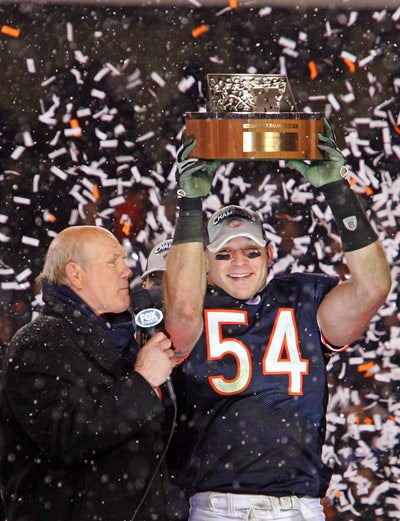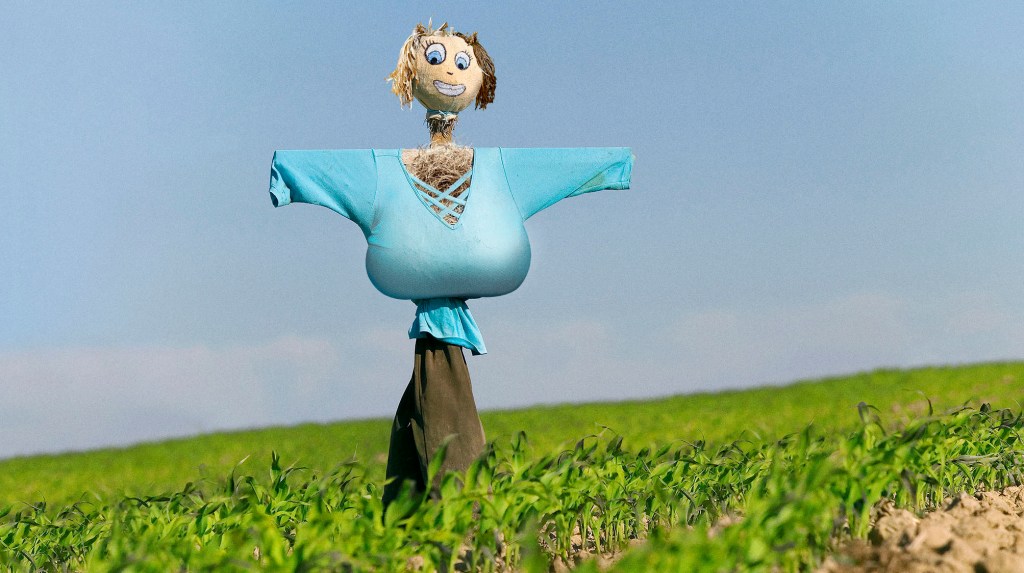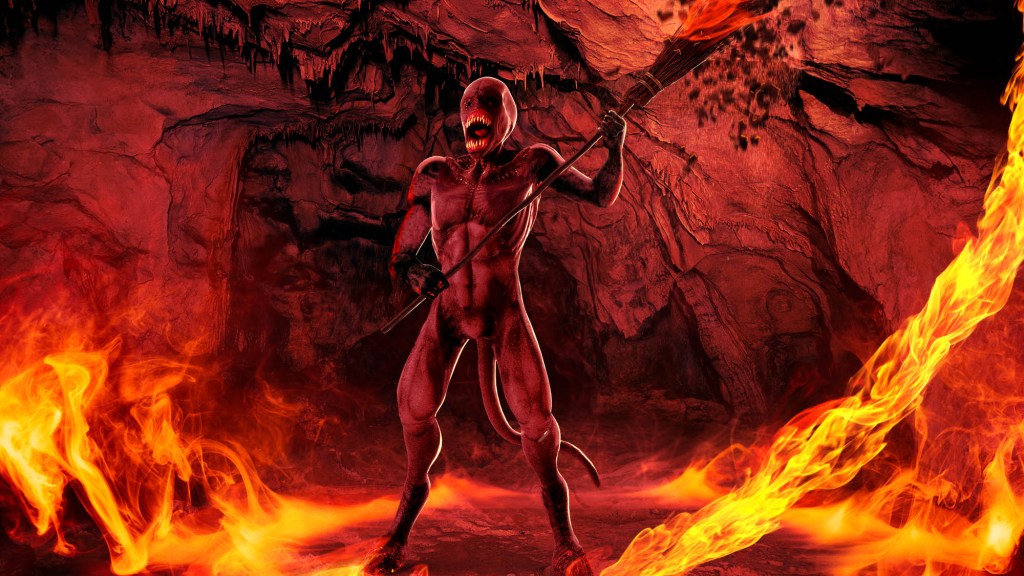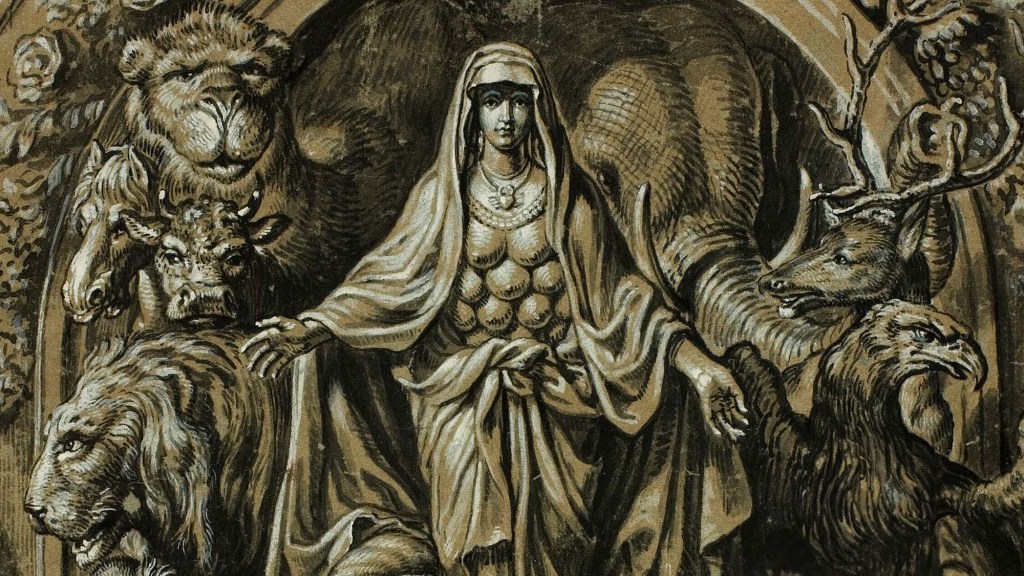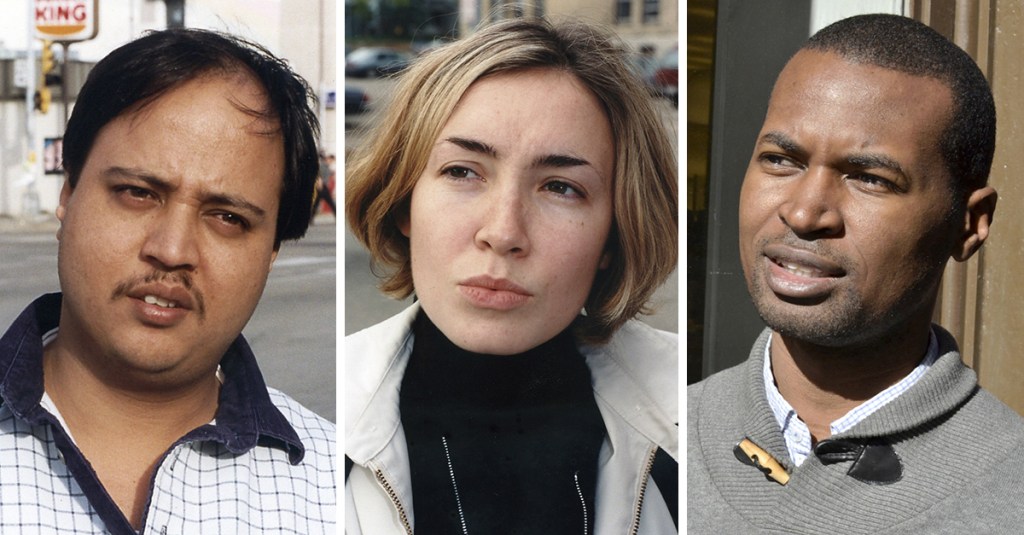CHICAGO—As Brian Urlacher triumphantly hoisted the George Halas Trophy Sunday, it was a symbol of more than just the Bears’ 39-14 victory over New Orleans—it was a symbol of hope to the thousands of Chicagoans who are still struggling to resume normal lives after the fire that swept through a 2,000-acre swath of downtown, killed over 300 people, injured hundreds more, destroyed a third of Chicago’s buildings, and left 100,000 residents homeless this past Oct. 8 through Oct. 10, 1871.
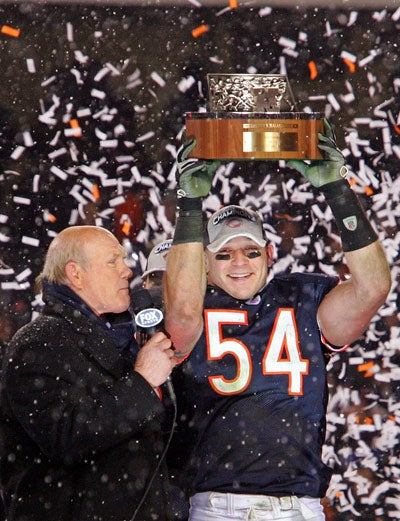
“No disrespect to the Saints,” Urlacher said, “but as much as this victory would have meant for any team, after what our city has been through, it means much more to us. Hopefully, going to the Super Bowl will help the people of Chicago put the terrible events of 135 years ago behind them.”
Coach Lovie Smith knows that just going to the Super Bowl, or even winning it, will do little to help the city rebuild, but says he is “humbled” by the inspiration Chicago residents feel when his team wins.
“We know winning the Super Bowl won’t put up a single ravaged building or house a single displaced family,” Smith said in a press conference after the NFC championship game. “At this point, there’s little we can do for the victims. But as long as we can inspire the community to hold on and get past what the Great Fire has done to them, we’ll have done our job.”
“Everywhere I go, people are like, ’Thank you for what you’re doing. Thank you for giving us hope.’ And some of them are people whose families lost everything—homes, livestock, wagons, everything,” said quarterback Rex Grossman, who has donated every game check of the postseason to the Chicago Fire Historical Society. “And I tell them, ’No, thank you. After what you’ve been through over the past century or so, you give us a lot of hope.’”
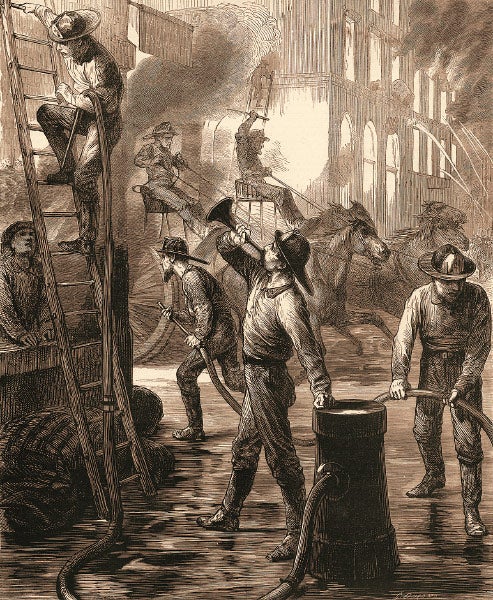
Chicago had an uphill battle for recovery from the devastating blaze, a struggle made more difficult by drought, economic collapse, civil unrest between the city’s Protestants, Catholics, and many recently freed slaves, and the apparent indifference to the city’s plight by uncharismatic and unpopular Republican president Ulysses S. Grant. Still, the townspeople’s imagination was captured by the successful rebuilding of the Chicago Bears, a task once seen as impossible.
“In the days after the fire, there basically were no Chicago Bears,” said Mayor Richard Daley. “It took men of vision to found the team in nearby Decatur in 1919, move them to Chicago in 1921, and hire George Halas to coach them. The Bears made a huge effort to attract such great players such as Red Grange, Sid Luckman, Dick Butkus, Walter Payton, and Brian Urlacher. Basically, since the fire, they’ve turned the team from a total nonentity to a championship contender.”
“The people of Chicago see that and think, ’Hey, if the Bears can do that, we can make this city great again,’” he added.
Schaumburg resident Tom Berry, a clothing salesman who bought Bears tickets as soon after the fire as he could afford them, knows what the team means to the area. “People lost great-great-grandfathers in the fire. Great-great-great grandfathers lost children in that fire. I think unless you were there, you wouldn’t understand,” Berry said. “You walk around downtown, look around at the historical sites of all that devastation, and it kind of brings you down.”
“Except on Sundays,” Berry added. “On Sundays, you sit down and watch the Bears and somehow you just forget about all that, if only for a while.”


